on the platform of supercapacitors
- Bulgaria-Italy-Spain supercapacitors


The BISCaps project foresees the cooperation among partner organizations to strengthen the scientific achievements and innovation capacity of IEES-BAS in the field of electrochemical energy storage through supercapacitors.
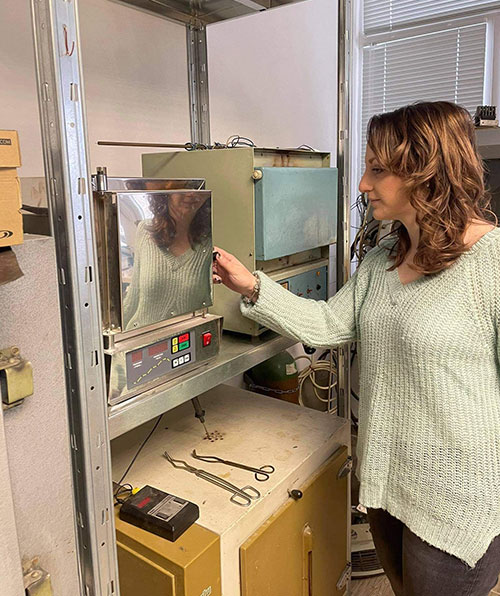
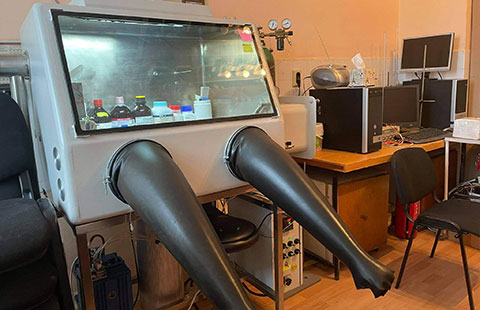
Publications
Online Training
Conferences
Work Meetings
Bulgaria-Italy-Spain supercapacitors
Project network and management
Exchange of know-how and technology transfer
Disseminations and exploitation

Latest news and events
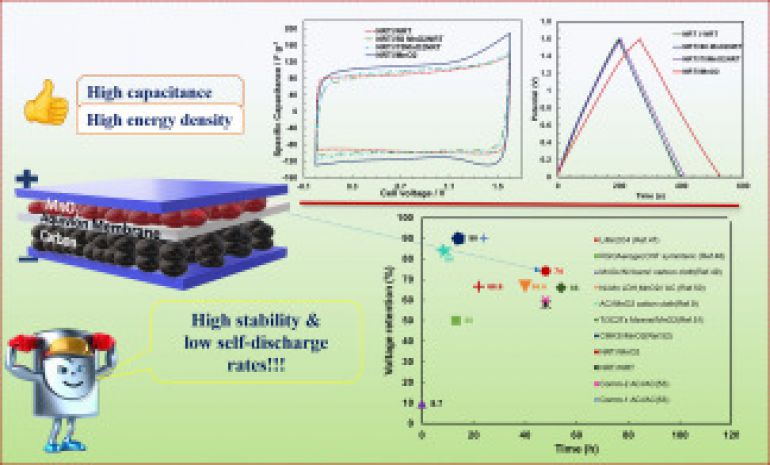
In this research work, we reported the synthesis of MnO2 by a simple co-precipitation technique and its use as electrode material for supercapacitors. Thus, hybrid supercapacitors with asymmetric configuration were constructed using a commercial activated carbon as the negative electrode, MnO2 and composites in the positive electrode, and Na+-form Aquivion electrolyte membrane as the separator and polymer electrolyte. The synergistic influence of MnO2 and carbon in the electrodes resulted in perfectly reversible charge storage processes at the positive electrode. As a result, the fabricated solid-state supercapacitors exhibited well rectangular voltammograms and a high specific capacitance of 130 F g ̶ 1 at 0.2 A g ̶ 1 , as well as an energy density of 11.5 Wh kg ̶ 1 at a power density of 161 W kg ̶ 1. Moreover, this type of hybrid supercapacitor was able to achieve a long lifetime (i.e., 150 h at 1.6 V) for up to 10,000 cycles through a combination of galvanostatic charging/discharging, and floating conditions without compromising the capacitance stability. In addition, the NRT//MnO2 supercapacitor exhibited excellent voltage retention (self-discharge) of more than ~74% at 48 h after charging in a high-voltage window of 1.6 V. These results suggest that the presented asymmetric solid-state configuration may be suitable for developing more efficient and sustainable energy storage devices.
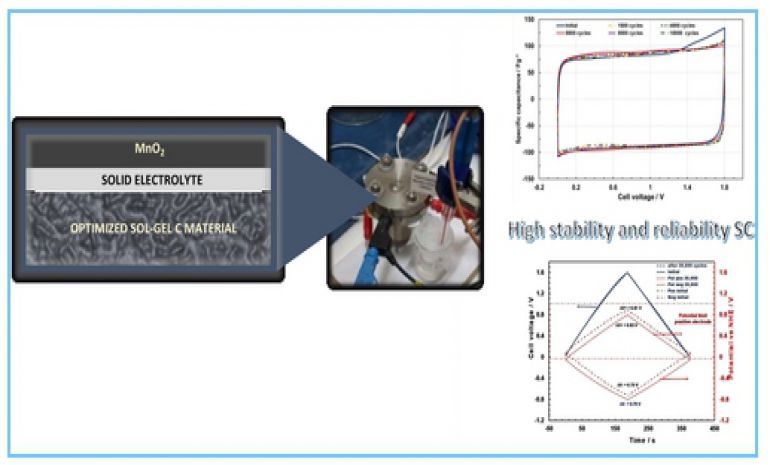
Supercapacitors are playing a very relevant role in many applications due to their capability to supply high power density and long durability. However, there is a growing demand to increase their energy density, in gravimetric and volumetric basis. There are different strategies to increase supercapacitor performance by improving the active materials used in the electrodes, the type of electrolyte used or even the configuration employed in the cell. In this work, a combination of these strategies is presented with the use of different active materials, electrolytes, and symmetric vs. asymmetric configuration. The supercapacitor with asymmetric configuration using the graphene-doped carbon xerogel in the negative electrode and the manganese oxide in the positive electrode, along with the use of Na+-form Aquivion electrolyte membrane as solid electrolyte, seems to be a promising combination to obtain a substantial enhancement of both gravimetric and volumetric capacitance. Furthermore, the device presents great stability in a wide operational voltage window from 0 to 1.8 V and with a neutral pH polymer electrolyte which contributes to improve the performance, safety, and long cycle life of the device.
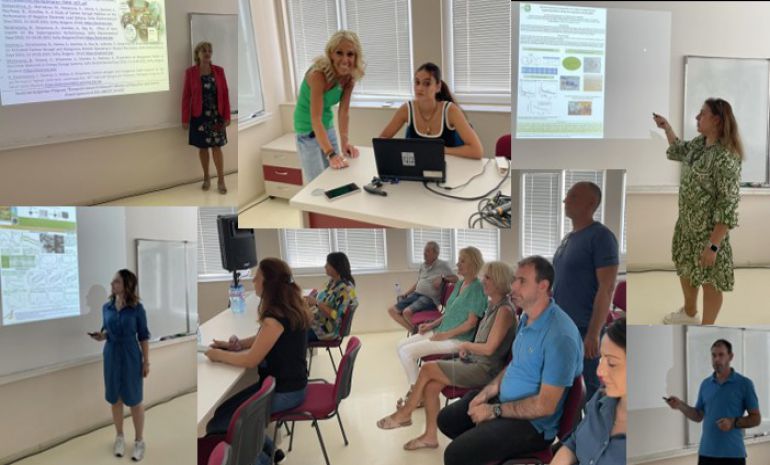
On September 12, 2023, the Final Meeting of the BIScaps project took place, where the most important scientific results were reported. Prof. Antonia Stoyanova summarized the activities carried out, expressing satisfaction with what was achieved. She emphasized the great importance that the project has for increasing the expert level and the growth of young Bulgarian scientists, applying the "Learning by doing" approach. The head of the project thanked the Italian and Spanish partners for the efforts made to realize it and expressed confidence that this is only the first step in the future cooperation between the three scientific organizations. Prof. Stoyanova also thanked the participants for their active work and last but not least the Ministry of Education and Science of the Republic of Bulgaria for the financial support.